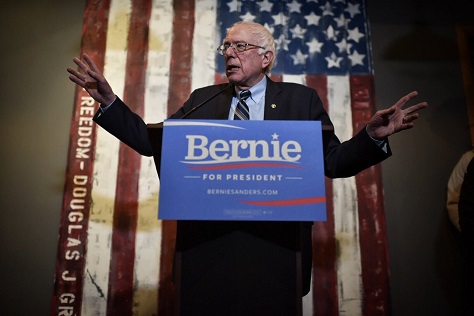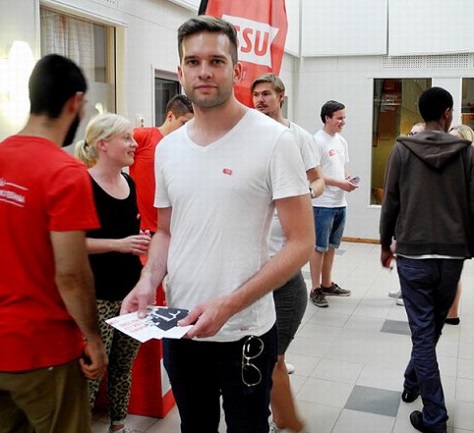
Bernie Sanders might just be the American version of Jeremy Corbyn after all. ![]()
On the eve of Sunday night’s Democratic presidential debate, Sanders, the Vermont senator with a self-proclaimed ‘democratic socialist’ charge to win the Democratic presidential nomination, released a more detailed plan for achieving universal health care. By its own terms, the Sanders plan would provide ‘Medicare for all,’ though it actually goes much further by eliminating co-pay and deductibles, adding to the sticker shock of a federal program that would cost $1.38 trillion annually. It also comes with huge tax increases that would give US citizens, in one fell swoop, higher tax rates than many ‘social welfare states’ in western Europe.
Many critics, including those on the left who should be sympathetic to achieving even more universal health care, have been skeptical.
Ezra Klein at Vox chides the Sanders plan for omitting details about how a single-payer system would be forced to deny many benefits and treatments, just as Medicare does today. Paul Krugman at The New York Times calls the Sanders plan an exercise in fantasy budgeting, arguing that it relies on wild assumptions about the savings it can achieve in health care spending through a single-payer system. Jonathan Chait at The New Yorker argues that the next president will invariably face a Republican-controlled House (if not Senate) and that introducing a single-payer system would be impossible.
All of these are valid, reasonable criticisms of the Sanders plan.
But if you really believe that president Barack Obama’s health care reforms are just one step on the way to universal health care and, like Sanders, you are committed to a single-payer system, there was always a much better policy plan:
Lower the eligibility age of Medicare from its current level (65 and older) to allow all Americans aged 55 or older to participate.
It could have been, for Sanders, a beautiful political maneuver that would put both his rival for the Democratic nomination, Hillary Clinton, and congressional Republicans on the defensive, all while having the benefit of being generally great policy. Continue reading How Bernie Sanders blew an opportunity on health care reform






